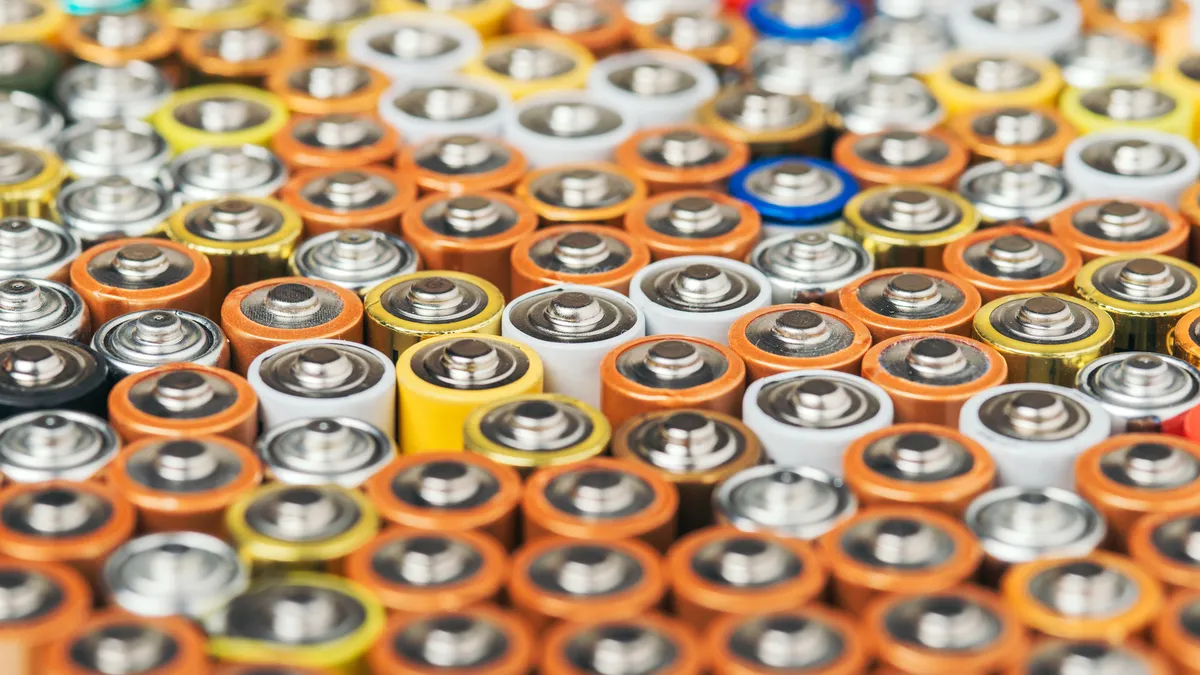Leo Raudys is CEO of Call2Recycle, America’s first and largest consumer battery recycling and stewardship organization.
To help avoid a climate catastrophe, we need to electrify every corner of our lives and economy using clean energy — an attempt to undo centuries’ worth of damage to our planet wrought by our reliance on fossil fuel energy. An electric future will also improve national security by reducing our need for oil from other nations.
But cleaner energy in homes, workplaces, businesses and transit will not lead us to the greener tomorrow we seek without a plan to recycle millions more pounds of batteries than we do today. Fighting climate change and the degradation of Earth means keeping batteries, and the devices that run on them, out of landfills. It also means reusing the valuable minerals batteries are made of, therefore reducing the need to mine for them.
The U.S. EPA now has a historic opportunity, made possible by last year’s bipartisan infrastructure law, to chart a course toward a time when every battery is properly recycled. EPA has $25 million and five years to put in place best practices for collecting batteries and develop guidelines for an updated national voluntary labeling system that promotes recycling.
The initiative is part of the Biden administration and EPA’s bigger push — with $375 million in infrastructure funding — to put in place new recycling, reuse and waste prevention programs that advance the circular economy.
This is the biggest action the federal government has ever taken on battery recycling, and it’s long overdue. Batteries have a wide range of chemistries, like lithium-ion, nickel-cadmium, small sealed lead acid and alkaline. Batteries also vary widely in size from minuscule to the size of a mattress. A one-size-fits-all approach won’t do.
The EPA took its first step this summer by soliciting public comment, and a progress report to Congress is due next fall. As the leader of America’s first and largest consumer battery recycling and stewardship organization, here are four things I believe EPA should focus on as soon as possible:
Educate Americans about battery recycling and expand options for single-use batteries
Safe, responsible battery recycling options are widely available for rechargeable batteries, but options are very limited for single-use batteries. No wonder people are confused about battery recycling!
In 2019, according to a poll commissioned by Call2Recycle, about 3 in 10 Americans didn’t believe either single-use (30%) or rechargeable batteries (29%) could be recycled at all. Almost as many people weren’t sure whether they could recycle these battery types.
All of this means most batteries don’t get recycled like they could be. We need consistent, nationwide campaigns that emphasize safety and address a variety of battery types, so no battery ever gets tossed in the trash or curbside recycling bin.
Support the creation of an infrastructure for large-battery recycling
Increasing the number of zero-emission vehicles on the road and weaning our energy grid off fossil fuels are urgently important for reversing current global warming trends. We must get ahead of the curve now to prepare for an increased need to recycle the larger batteries that will aid those transitions.
Today, important parts of the infrastructure for recycling larger batteries, which come in a dizzying range of shapes and sizes, remain immature. The EPA should find ways to advance a stronger infrastructure that meets today’s needs and anticipates the batteries of tomorrow.
Improve the handling of damaged, defective, and recalled batteries
Recyclers can’t collect damaged, defective or recalled batteries in the same way as intact batteries because of regulatory and transport requirements.
Call2Recycle and other battery recyclers, including those that focus on lithium-ion batteries, have developed best practices for handling DDR batteries. Now, we need education campaigns for consumers and retailers — as we are now doing with batteries for e-bikes, for example. We also need safety training for people who handle these batteries and widespread adoption of practices like placing defective batteries in special nonflammable containers.
Roll out clear and consistent national standards for voluntary labeling
Congress passed and President Bill Clinton signed into law the Mercury-Containing and Rechargeable Battery Management Act way back in 1996. No major federal battery law has been enacted since.
The Battery Act requires nickel-cadmium and certain small sealed lead acid batteries to be labeled “Battery Must Be Recycled or Disposed of Properly.” To better promote recycling, and with funding from battery and product manufacturers, we created a label that features a battery surrounded by three chasing arrows and the word “RECYCLE.” EPA certified the label in 1998 and it remains in use on batteries and in product manuals today. To our knowledge, there have been no other EPA-certified battery recycling labels to date.
A lot has changed since then, with many more devices and sizes and types of batteries that need to be properly recycled. Improving voluntary battery labeling to meet today’s needs while planning for future advancements will most certainly boost recycling and maintain safety.
New battery labeling guidelines have to meet clear international standards. At Call2Recycle, we’ve been thinking about whether we need new language that distinguishes battery recycling from curbside recycling, and we would like to do this in cooperation with EPA. Finally, our labels direct people to a toll-free number that allows them to find a drop-off location by zip code, but people also need more efficient digital avenues.
Manufacturers, local and state governments, and recyclers have long been part of the solution, and they will continue to play an important role. By setting the nation on course to supercharge battery recycling, EPA can lead the way toward securing our electric future — one with a healthier climate, national energy security, a circular economy that preserves natural resources and all the benefits of modern life.
Contributed pieces do not reflect an editorial position by Waste Dive. Do you have an opinion on this issue, or other topics we cover? Submit an op-ed.






















